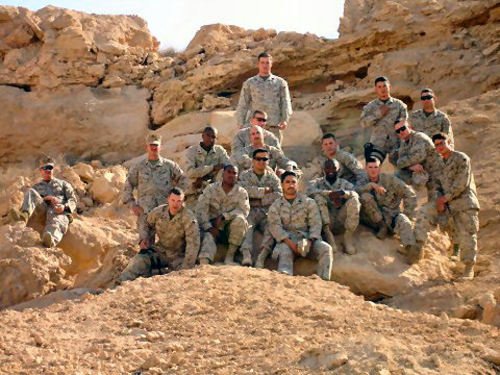
It moves many people to sadness and anger when they see an American veteran on the streets and living homeless. There are some folks that see them as worthless or lazy, and think that if this person would just get a job things would be fine. That is a lot more difficult than a lot of people realize, and some veterans don't want to be closed up in confined areas. I have had homeless veterans tell me that even a wide open, gym-type of space feels uncomfortably confined to them. I am going to write about two issues concerning veteran homelessness, and some things that might be done to assist with these issues.
The first issue I want to discuss is employment. Why don't all American veterans have jobs when they leave the service? There are initiatives out there to help vets get jobs, so why aren't they working? There are a few answers to these questions, one of them being that the vet may be self-medicating with alcohol or drugs to numb the Post-Traumatic Stress Disorder, or PTSD, that they acquired during their service. They may have lost a job due to drinking, and employers may feel that he or she is unemployable (Stacy, Stefanovics, & Rosenheck, 2017). Another reason that veterans lose their employment and become homeless is mental or physical health problems (Stacy, Stefanovics, & Rosenheck, 2017). I have spoken to a few homeless vets who say they are not aware that the VA has services that might help them, or that they qualify to receive services there. Therapy and counseling are some of the solutions in which the VA can help (Stacy, Stefanovics, & Rosenheck, 2017). There are also several support groups that are run by vets that have been helpful. The Veterans Emotional Crisis line is 1-800-273-8255, option 1. Womens' Vet Hotline is 1-855-829-6636. Homeless Veterans' National Call center is 877-424-3838.
The second issue is housing and shelter for the American veteran. O'Connell, Kasprow, and Rosenheck performed a study not only looking at housing for veterans, but supported housing which includes intensive case management along with rent subsidies housing (2017). Even for the veterans that are afraid of enclosed places, this could be a viable option to live (along with mental health counseling) safely and supported instead of isolated and alone (O'Connell, Kasprow, & Rosenheck, 2017). With case management, the American veteran can eventually connect with the world as it is, and hopefully adjust. If homes like these were made or arranged for veterans, they would also have the support of each other. It is a win-win situation. My hopes are that the VA can expand to support these communities all across America, and that we will all be more understanding of our brethren keeping us free.
References
O'Connell, M., Kasprow, W., & Rosenheck, R. (2017). Impact of supported housing on social relationships among homeless veterans. Psychiatric Services, 68(2), 203-206. doi: http://dx.doi.org/10.1176/appi.ps.201500276
Stacy, M., Stefanovics, E., & Rosenheck, R. (2017) Reasons for job loss among homeless veterans in supported employment. American Journal of Psychiatric Rehabilitation, 20(1), 16-33. doi: http://dx.doi.org/10.1080/15487768.2016.1267049
Congratulations @borednurse! You have completed some achievement on Steemit and have been rewarded with new badge(s) :
Click on any badge to view your own Board of Honor on SteemitBoard.
For more information about SteemitBoard, click here
If you no longer want to receive notifications, reply to this comment with the word
STOPI sure would not want to be a Vet suffering from ptsd nowadays(ever really). People just want to dose you up and forget you hoping you wont be a problem later.
I feel badly for the vets that get wrapped up in this stuff just because it was an easy job with benefits at the time. The way the army promotes in highschool and the like I think is the worst. Let a kid put a little life experiance under his/her belt before throwing them into something that will most likely scar them for life.
True artwatch. Thank you for commenting. Keep those numbers.
My questions are:
Why did anyone volunteer to participate in potential violence against other people ?
Who convinced them that this was a noble cause?
There are greater issues at stake here.
I think for a lot of folks it starts with needing a job and unable to support their family. For some, it is the GI Bill and that their education would be paid for. Back when I was a younger woman, before the Gulf War, I wanted to be a Marine to help me structure my life and get back on track. We hadn't had a war in many years so it wasn't real to me. Everyone has their own reasons, and I don't think anyone thought it would touch them the way that it has. Thanks bchick! I value your input.